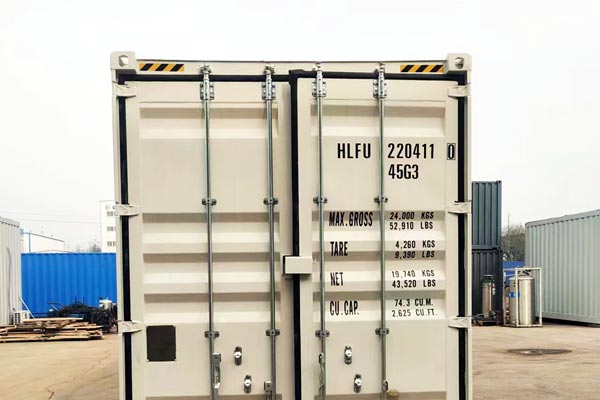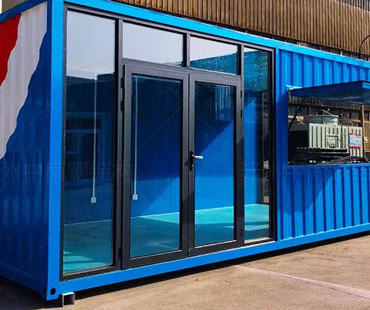The global economy is intricately woven together by the threads of container transportation, an essential component of international trade that has evolved dramatically over the last few decades. As we look to the future, the industry stands at a crossroads, facing both unprecedented challenges and remarkable opportunities for innovation and sustainable development. This article explores the emerging trends in container transportation and how they can lead to a more efficient, environmentally friendly, and resilient global supply chain.
1.Technological Advancements in Container Transportation
One of the most significant drivers of change in the container transportation industry is technological advancement. Innovations such as automation, artificial intelligence (AI), and the Internet of Things (IoT) are transforming logistics operations. Automated ports and autonomous vessels are being developed to minimize human error and enhance efficiency. For instance, the implementation of AI algorithms in routing and scheduling can optimize shipping routes, reduce transit times, and lower fuel consumption.
Moreover, IoT technology allows for real-time tracking of containers, ensuring that stakeholders can monitor their shipments throughout the supply chain. This transparency not only improves inventory management but also enhances security by reducing the risk of theft and loss. The integration of blockchain technology further enhances these systems by providing tamper-proof records of transactions, which can streamline documentation processes and reduce fraud.
2.Sustainable Practices in Container Transportation
As environmental concerns become increasingly urgent, the container transportation industry is under pressure to adopt more sustainable practices. The shipping sector is one of the largest contributors to greenhouse gas emissions, prompting the need for cleaner alternatives. The International Maritime Organization (IMO) has set ambitious targets to reduce emissions, leading to a surge in investment in green technologies.
Shipping companies are exploring alternative fuels such as liquefied natural gas (LNG), hydrogen, and biofuels to power vessels. Additionally, the development of wind-assisted propulsion systems and energy-efficient ship designs can significantly reduce a vessel’s carbon footprint. The transition to electric and hybrid vessels is also gaining momentum, with several companies testing electric ferries and short-haul cargo ships.
Furthermore, sustainable logistics practices, such as optimizing load capacity and reducing idle time, can enhance overall efficiency and minimize environmental impact. Companies that embrace these changes will not only contribute to a healthier planet but also gain a competitive edge in an increasingly eco-conscious marketplace.

3.Resilience in Supply Chain Management
The COVID-19 pandemic highlighted the vulnerabilities of global supply chains, exposing the risks associated with over-reliance on specific routes or regions. As a result, businesses are re-evaluating their logistics strategies to build more resilient supply chains. This shift involves diversifying suppliers, investing in local production, and adopting more flexible transportation methods.
Container transportation is adapting by incorporating more agile practices. Companies are leveraging data analytics to anticipate disruptions and develop contingency plans. Enhanced collaboration between stakeholders—shippers, carriers, port authorities, and customs agencies—can lead to more coordinated responses in times of crisis.
Additionally, the rise of nearshoring—the practice of relocating production closer to end markets—can mitigate risks associated with long-distance shipping. This trend not only shortens delivery times but also reduces transportation costs and emissions, aligning with the industry's sustainability goals.
4.The Role of Digitalization in Container Transportation
Digitalization is revolutionizing container transportation by enabling seamless communication and data sharing across the supply chain. Cloud-based platforms and digital marketplaces facilitate real-time collaboration, allowing stakeholders to make informed decisions quickly. This shift towards digital ecosystems enhances efficiency, reduces administrative burdens, and fosters innovation.
The emergence of digital twins—virtual replicas of physical assets—allows companies to simulate and optimize logistics processes before implementation. By analyzing data in real-time, firms can identify bottlenecks, streamline operations, and enhance overall performance.
Moreover, digital solutions can improve customer experience by providing transparency and timely updates. As consumers increasingly demand real-time information about their shipments, companies that prioritize digitalization will be better positioned to meet these expectations.
The future of container transportation promises a myriad of opportunities for innovation and sustainable development. By embracing technological advancements, adopting environmentally friendly practices, building resilient supply chains, and leveraging digitalization, the industry can navigate the challenges ahead while contributing to a more sustainable global economy.
As stakeholders across the supply chain work together to implement these changes, the container transportation sector can pave the way for a future that is not only efficient and profitable but also responsible and sustainable. The journey ahead may be complex, but the potential rewards make it a necessary and exciting endeavor.


